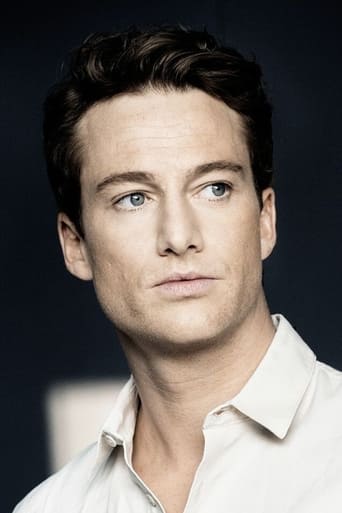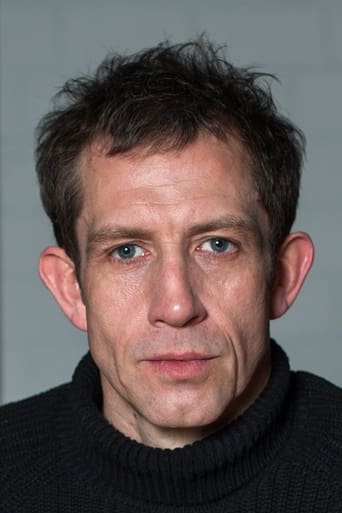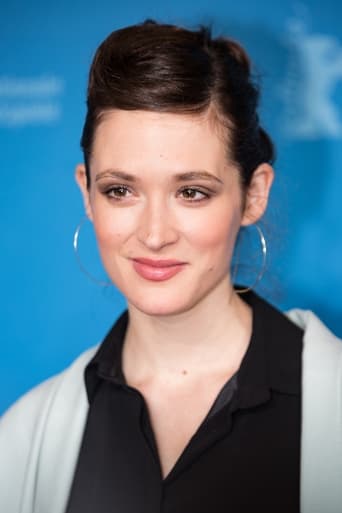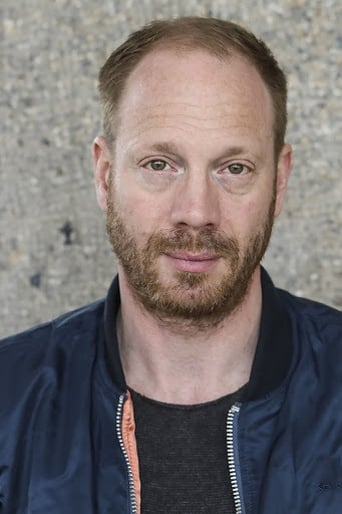Scanialara
You won't be disappointed!
Ceticultsot
Beautiful, moving film.
Allison Davies
The film never slows down or bores, plunging from one harrowing sequence to the next.
Zandra
The movie turns out to be a little better than the average. Starting from a romantic formula often seen in the cinema, it ends in the most predictable (and somewhat bland) way.
Mark Turner
While many movies have been made about WWII and the Holocaust, few have been made concerning the rebuilding of Germany after the war. There is little doubt that this would have been a fascinating time in history to examine and yet I for one have rarely heard it discussed. Until now. LABYRINTH OF LIES tells the story of what could have been the greatest cover up in history had it not been for several brave individuals who wanted to make sure the truth was told.Johann Radmann (Alexander Fehling) is a recent addition to the prosecutor's office in Frankfurt. The year is 1958 and the war has been over now for 13 years. Given the task of handling minor cases like traffic tickets, Radmann has his curiosity piqued when a journalist confronts the head prosecutor claiming that a man has recognized one of the guards from Auschwitz working as a grade school teacher. Ignored by the head man, Radmann takes it upon himself to talk to Thomas Gnielka (Andre Szymanski), the reporter.While many of us today know full well what happened at Auschwitz at this time it wasn't common knowledge. Gnielka takes Radmann with him to meet Simon Kirsch, the Auschwitz survivor who gave him this information. As Radmann gets more and more involved in the lives of these two men as well as becoming a part of their circle of friends, he wants to take on this case. But that's where the first impediment comes in as his supervisor wants the case ignored. Fortunately that's not the case with the head of the department, Fritz Bauer (Gert Voss).A Jew himself, Bauer appoints Radmann the head of the investigation and sets him up with his own secretary and office. Radmann begins to look into Simon's claim but finds his path blocked by people in his government as well as U.S. representatives remaining after the occupation. No one wants the truth of Auschwitz to be revealed and they will do anything to keep what happened secret.With the guiding hand of Bauer to set him on the right path, Radmann begins to uncover the secret history of Auschwitz and what was done by the German people, some just following orders but the more horrendous of the group giving those orders with apparent glee and joy. At the top of his list is Josef Mengele. When Radmann learns that Mengele travels without fear between Germany and his home in South America he is outraged. But it is his focus on Mengele that nearly brings his investigation to a halt. Only through dogged determination will he find the opportunity to find those behind Auschwitz.What makes this movie interesting is not the story of Auschwitz itself but the fact that so many were willing to hide this piece of history for what they considered the greater good, the rebuilding of a country already devastated by a war their leaders had created. But can the healing actually take place if the wounds are hidden rather than taken care of? That becomes the central question asked in this film.It's not just the bureaucrats that attempt to ignore the past either. A side story of Radmann falling in love with a beautiful dress designer who is part of that Bohemian group that Gnielka surrounds himself with ties in with the story as well. While outraged at first when well connected and wealthy bureaucrats and their wives set her up with her own shop and business, she begins to find that she too is caught up in the silence rather than the correction of history. Like most of those who were involved in the war she simply wants to move on and forget about the past no matter how terrible the atrocities were.Let me say now that if subtitles are not your thing you'll probably pass this one by. But if you do you short change yourself from seeing a great movie. It's not a metaphor for current history, it's not making a hugely political statement about the world today, it's discussing the past and a history that was not just almost forgotten but hidden away under mounds of paperwork and by people who were once involved in those brutal places but now are connected enough with officials that they feel safe.The movie has a stunning look to it with some beautiful cinematography that could have been found drab but instead feels real. The acting it done so well that even with translation the performances on display here convey the emotions so well that you find yourself wondering from moment to moment what will happen next as well as being involved with each character on screen.When all is said and done, in what some have found a slightly faulty ending wrapping things up too neatly, you have a compelling story that offers zero dull moments and plenty of drama that will hold your attention from start to finish. For me a great movie is one that I know I'll pull out and watch again. This is one of those movies.
CineMuseFilms
Holocaust stories from Schindler's List (1993) to Son of Saul (2015) penetrate our emotional defences by dragging us right into the horror zone. In Labyrinth of Lies (2014) we are spared this entirely because the horror is of a different kind. The focus is on a nation in denial, desperate to block the collective memories of the generation responsible and prevent the following one from ever knowing. The historical timeframe depicted is critical to grasping the power of this story. Set in 1958 Germany, thirteen years after the war, the economy is booming but the nation's older generation struggle with guilt and anger while the young have not even heard of Auschwitz. Produced in Germany, this film is an illuminating piece of the historical puzzle and part of a nation's prolonged self-atonement.The storyline is linear and uncomplicated. A journalist recognises a former Nazi commander of Auschwitz now working as a schoolteacher, but he cannot elicit any interest from public prosecutors. He befriends young lawyer Johann Radmann who processes parking fines but is desperate to take on serious cases. Despite ridicule from colleagues he is made lead investigator and gradually learns about the secret killing factories of Auschwitz. The labyrinth he encounters is one of silence and lies, as large numbers of public servants and others in positions of power were former members of the Nazi Party and many were morally complicit in Hitler's Final Solution. Along the way, he becomes the obsessive hunter as the investigation keeps getting bigger until it is all- consuming. A romantic sub-story is awkwardly woven into the plot both to humanise Radmann and show the destructive impact that the investigation has on his life. The filming and sets convey the period with authenticity, and the directing is tight although the script is heavy. It takes almost the entire film to expose the full-scale truth, and the results of the investigations are dealt with swiftly as a cinematic necessity.No doubt some people watch Holocaust films for entertainment, but many more do so searching for understanding of this extraordinary period of history. Labyrinth of Lies is important because it fills the gap between war's end in 1945 and the world's slow awakening to what happened at Auschwitz. In particular, it explains how the truth was kept from young Germans oblivious to what their parents did in the war and shows powerful hands on the blanket of silence. Like Spotlight (2015), the story starts by looking at the tip of an iceberg that grew until it overwhelmed a nation and it maintains an engaging thriller quality to the end.
Victoria Weisfeld
Germany's submission (trailer) for Best Foreign Language Film at the upcoming Academy Awards puts viewers in a world of anti-Semitism, fear, denial, indifference and callous pragmatism. The movie, screened with subtitles, breathes life into the familiar storyline of a justice-seeking crusader. This one is not entirely alone, but the pervasive forces he's battling are propagated not just by those in power but by the common folk as well. Set in Frankfurt in 1958, the movie fictionalizes the effort to conduct the first German prosecutions of former Nazi officials. Many believed the Nuremberg trials conducted by the Allied forces had resolved that matter (or should have). At the same time, it was common knowledge that war criminals were everywhere, carrying on normal lives with impunity. Only after these ground-breaking trials did Germans finally confronted their wartime culpability. Bringing ex-Nazis to justice required heroic effort. Making that journey in the film is young prosecutor Johann Radmann, played by Alexander Fehling in a widely praised performance. (Radmann is a composite of several real-life prosecutors.) He's a junior one, handling traffic violations, but he's ambitious. The screenplay deftly reveals this by showing him articulating the case for sentencing a murderer to the maximum penalty of life imprisonment, then we see he's standing alone in front of a bathroom mirror. Into this unfulfilled life comes a revelation from a journalist, Thomas Gnielka (André Szymanski). He tells prosecutors a member of the Waffen S.S. stationed at the Auschwitz concentration camp now works as a school teacher, in violation of federal law. Radmann wants the case, but he's opposed by his boss and colleagues. He's supported, however, then led by a shrewd, experienced Attorney General, Fritz Bauer, the real-life hero of the story, who has long harbored the ambition of bringing top ex-Nazis to justice. Played by the late Gert Voss, he exudes quiet power. Radmann is far less aggressive in his personal life than his professional one, but a convincing romantic involvement with a dressmaker, Marlene Wondrak (Friederike Becht), raises the stakes for him. We feel the horrors of the camp through the emotions of survivors, primarily artist Simon Kirsch (Johannes Krisch), a friend of Gnielka, who lost his twin daughters to the horrific experiments of Dr. Josef Mengele. But the focus stays on the complicity of those who continue to ignore, deny, or cover up Nazi crimes. It's not difficult to understand the disconnect between Radmann and the people trying to thwart him. He was too young to appreciate how so many of his countrymen came to be Nazis. If he can't come to terms with his new knowledge, however, it will destroy him.
Ruben Mooijman
Nowadays, the word Auschwitz has become a synonym for the worst kind of human evil. But there was a time when, at least in Germany, nobody knew the word, let alone what happened there. In the years after the war, German society wanted to forget everything about this terrible period, including the atrocities committed. 'Im Labyrinth des Schweigens' (In the Labyrinth of Silence) shows how this period came to an end. A journalist presses charges against a former Auschwitz camp commander, who is now a school teacher. A prosecutor starts an investigation, but his efforts are obstructed by all kinds of procedures. It is clear that most Germans don't want to be confronted with the mass murders committed by their fellow compatriots. In one scene, the prosecutor asks his young colleagues what the word Auschwitz means to them. None of them come up with an answer. The film clearly shows how complex the past was for post-war Germany. Lots of people had been a member of the National Socialist Party, without being a nazi by conviction. Some became a nazi because it was convenient to be part of the ruling power-base. The prosecutor learns that even some people who are very close to him, were on the wrong side of history. Still, he is convinced that the men who committed war crimes should be punished. This is an interesting story about an unknown period in the German history. Unfortunately, the film maker decided to include a cheesy love story in the script. The prosecutor's love affair is distracting, unnecessary and predictable. Towards the end, there are too many side stories and subplots, and the film starts dragging on. At the same time, there are some very nice creative scenes. I particularly liked the scene without words, when the prosecutor starts interviewing the witnesses from the concentration camps. Small gestures and facial expressions show, better than any dialogue, the horror these people must have gone through.





